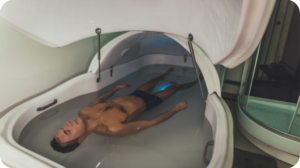Understanding what energy kinesiology is involves taking a step back and looking at the word “kinesiology.” Stemming from the Greek word for movement, kinesis, kinesiology is the mechanics of the body’s movement. Energy kinesiology is a subspecialty that focuses on the movement of energy through the body.

The fundamental theory behind energy kinesiology is that when a person is healthy, energy flows through the body evenly and strongly. When that energy is blocked or stuck for whatever reason, pain of one sort or another is the result. In response to the pain, we often adopt “adaptive patterns” that allow us to function around the problem, rather than addressing it.
The primary diagnostic tool EK practitioners use is what is known as muscle response testing (MRT). This is basically using the patient’s muscles as a biofeedback system, monitoring muscle response at specific points on the body. This is usually done by holding a muscle in contraction while applying some level of isometric resistance.
Once the problem area is identified (the location where energy is “stuck”), the energy kinesiologist attempts to rebalance the energy flow in the body—ultimately alleviating physical, emotional, or biochemical pain. This can involve working with the Chakra system, Tibetan “figure 8” energy flow, or other non-traditional energy channels in the body. In fact, energy kinesiology involves connections to myriad other practices, from acupressure and myofascial release, to the ancient Chinese system of bodily energy meridians, to aspects of homeopathy.
Done correctly, the practice can reveal the source of the imbalance, whether it is nutritional, energy related, emotional or psychological, or a physical defect. The problems may range from serious—i.e., the trauma of childhood abuse—to subtle, like a modest food allergy. Correction of the issue involves facilitating and supporting the body’s own innate inclination toward balance, health, and wellness, and correction.
The process is holistic, non-invasive, and meant to provide a resolution; it is not normally intended as a maintenance practice in the way chiropractic or massage are.
To learn more about energy kinesiology, consult The Energy Kinesiology Association website at www.energyk.org
Show some love if you liked this post!





